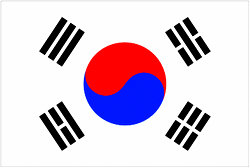Introduction
Tiredness and low energy are extremely common complaints in our culture, and are popular reasons for seeking acupuncture treatment. This short article explains how I approach the problem. It also gives you some questions to think about, and it hints at lifestyle factors we should consider.
As usual, we begin by looking at your health and living circumstances overall. With regard to your fatigue, how long has it been going on? Did it creep on gradually? Was there a sudden drop in your energy, perhaps associated with a virus, including covid-19, or another illness? The latter of course can suggest post-viral fatigue or ME.
Accompanying Symptoms
Are there accompanying signs and symptoms? These could include muscle aches, joint pains, headaches or a muzzy head, poor digestion, shortness of breath, changes in your weight, depression etc. What are the characteristics of the tiredness itself: do you feel better in the morning, only to find your energy tailing off by afternoon? Do you wake refreshed? Do you feel constantly tired, or do you experience peaks and troughs? Does your energy fluctuate quite rapidly and unpredictably? Do you feel better or worse for exercise? Is there any annual pattern ie. tiredness aggravated by a particular season? Are you suffering with chronic pain? For women, is there a pattern associated with your monthly cycle?
Sometimes patients have already consulted their GP before coming to see me. You may have been tested for things such as low iron levels, an underactive thyroid gland, infections or diabetes, depending on symptoms. Quite often however, no abnormality shows up on these tests. It helps me though if you know what your GP has already checked, just so that I too can exclude these from the possibilities I come up with after interviewing you.
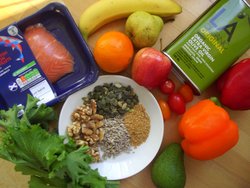 Diet and Water Intake
Diet and Water Intake
We next turn to other aspects of your life which can have significant impacts on your energy levels. I will ask about your diet, and will try to ascertain that it is appropriate for your needs, and for the season. The latter is an important concept in Chinese medicine, and a factor which over time can have more effect on energy than is commonly realised. We’ll look at whether your diet is giving you enough of the important vitamins and minerals, and whether there are signs you may not be absorbing nutrients optimally. Vitamins B and C, coupled with the minerals magnesium and iron, are particularly important. An unbalanced gut microbiome may also play a role in fatigue.
Keep to a broad diet, with abundant fruit and vegetables, nuts and seeds, natural oils like olive oil, whole grains, fish, eggs and poultry. Avoid excess sugar, processed foods, caffeine and alcohol.
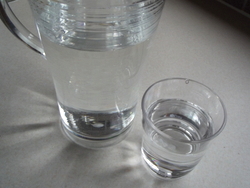 Do you drink enough water? Two litres a day is recommended. Don’t count tea or coffee, because the caffeine they contain acts as a diuretic, so it can be difficult to judge how much water you have actually retained.
Do you drink enough water? Two litres a day is recommended. Don’t count tea or coffee, because the caffeine they contain acts as a diuretic, so it can be difficult to judge how much water you have actually retained.
Sleep and Exercise
 I will also enquire about the quantity and quality of your sleep. An average of 7 to 9 hours is required by most people. Try to go to bed at the same time every day. Have a bedtime ritual for your mind to subconsciously recognise as a cue to sleep. Avoid caffeine and alcohol after the lunchtime period. (Alcohol tends to help sleep to come, but will give you a more disturbed night, undermining your energy the next day.)
I will also enquire about the quantity and quality of your sleep. An average of 7 to 9 hours is required by most people. Try to go to bed at the same time every day. Have a bedtime ritual for your mind to subconsciously recognise as a cue to sleep. Avoid caffeine and alcohol after the lunchtime period. (Alcohol tends to help sleep to come, but will give you a more disturbed night, undermining your energy the next day.)
Do you have the right balance of work, exercise and relaxation? Too little of either of the last two can contribute to fatigue. It matters less whether you participate in formal exercise, and more that you are sufficiently physically active eg gardening, walking to work.
Lifestyle and Work
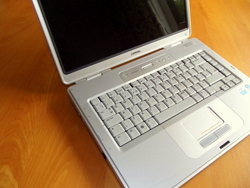
I will be interested too in the overall demands placed on you. This encompasses factors like the nature of your work, having small children, having teenagers, chronic medical conditions in the family, having elderly relatives you need to drop in on or shop for etc. Modern society is intrinsically tiring if we do not take firm control of the situation around us. We work the same hours summer and winter, despite many people wishing they could “hibernate” a little in winter. We are surrounded by technological sources of information (emails, texts, social media, television and radio), and have to take a critical look at what is necessary and what is not.
The workplace too has in the last twenty years, become more intense and stressful, and as companies have reduced staff numbers, we see the same workload shared across fewer shoulders. Even the morning commute may no longer feel like “your” time, as you fall into the habit of already dealing with business emails. We might talk about when and how you get your rest, and about whether you just say “no” sufficiently often.
Outlook and Relationships
Following on from the above theme, do you feel engaged with life, or are you nowadays lacking enthusiasm for the life you are living? Is there chronic stress, disappointment, dissatisfaction, boredom, sadness or loneliness? It’s easy to think that such feelings have arisen because of your tiredness, but sometimes such feelings are causing the physical tiredness. Perhaps a re-assessment of your life would be useful, to help you for example, find new purpose in work, relationships etc. We must have certain essential components present in our lives, and these include a sense of purpose, meaningful relationships, and an overall zest for life.
Prescribed Medication
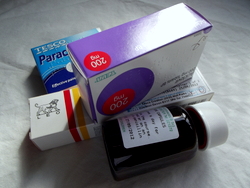
Finally, are you taking any prescribed medication? It is useful for me to know the details so that I can assess whether this contributes to your tiredness to any extent. Antihistamines, antibiotics, antidepressants, painkillers, statins and beta blockers are all examples of common drugs which can cause tiredness.
I hope this has been a helpful overview of my approach, and that it might have prompted you to consider some issues further. If you would like to talk more about acupuncture treatment, then please do call me.
Below you can read the results of some of the research which has been undertaken into acupuncture for fatigue. The trials vary in quality, but systematic reviews and randomised controlled trials are generally considered to provide the highest quality evidence. If you would like to read more about evidence quality, I would refer you to the British Acupuncture Council’s description of the evidence pyramid.

